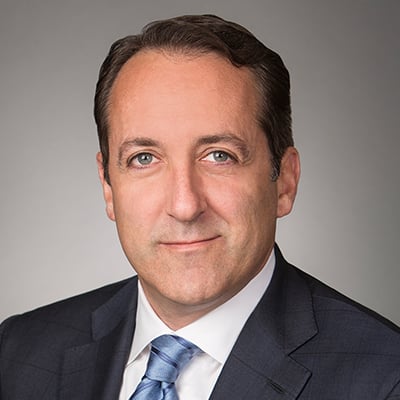Kirkland Notches a Quirky Win in a Quirky Forum
“The most interesting case I've ever seen.”
That’s how U.S. International Trade Commission administrative law judge Thomas Pender described a fight over cutting-edge battery technology.
On Monday, Kirkland & Ellis clients BASF Corp. and Argonne National Laboratory came out on top in a patent dispute with Umicore N.V., represented by Fish & Richardson. Pender issued an initial determination banning the importation of certain lithium metal oxide cathode materials and lithium-ion batteries.
It’s one of those cases that illustrates both the strengths and peculiarities of the ITC, a Washington, D.C. forum that’s been relatively quiet after a surge of new cases in 2010 and 2011.
Like most ITC cases, this is just one battle in a larger IP fight--parallel litigation between the companies is pending in U.S. District Court in Delaware and before the Patent Trial and Appeal Board at the U.S. Patent and Trademark Office.
Two of the three main players aren’t even American. BASF is a German company, and Umicore is based in Belgium.
Still, Kirkland lawyers led by Gregg LoCascio did their best to play up the role of Argonne, a research laboratory founded during World War II that’s operated by the University of Chicago for the Department of Energy. The lab holds patents related to rechargeable lithium-ion batteries, a key energy source for everything from power tools to electric cars. BASF has an exclusive license to use the patents.
“Because it's the Argonne National Lab, they only filed these patents in the United States,” LoCascio said, according to a transcript of the four-day trial in October. “So unlike corporate America, where you might seek patent protection around the world, the lab didn't. And so the customers you're going to see and the impact of it, frankly, the ITC is the epicenter of that, because we're protecting what's coming into this country for patents that only exist in this country.”
Michael McKeon from Fish derided the Argonne patents as “theories from a lab bench. The evidence will show that these lab bench patents simply do not apply to Umicore's real-world NMC materials” for lithium-ion batteries.
Some of the best moments in the hearing came when Pender, who has been an ITC judge since 2011, called it like he saw it.
Umicore, it should be noted, doesn’t actually make batteries. It makes cathode powders which its customers use to make batteries. That makes its infringement indirect.
Except Umicore’s chief technology officer Denis Goffaux testified that the company didn’t quite know what its customers did with the powder. “They try to avoid telling us any details, because we also supply to their competitors and so they don't want to make us too clever, because that could help their own competitors,” he said. “They really try to hide what they do with our product.”
“But you know what they're going to do with it. They're going to use it in a cell for a battery, correct?” LoCascio asked on cross.
“I cannot know for sure,” Goffaux said.
At that point, Pender stopped the hearing and told Goffaux to leave the courtroom. “I wasn't born yesterday. I don't find this witness to be credible,” the judge told the lawyers. “Bring him back in.”
There was a similar reluctance by McKeon to admit that 24 tons of powder imported by Umicore was destined to be used for batteries.
“Your Honor, materials have been imported into the United States, that is true, and no one disputes that,” he said. “But there's no subpoenas, there is no evidence. They never subpoenaed a single third party.”
Pender responded, “Mr. McKeon, they're not spreading it on corn fields or soybean fields, I mean, they're doing something with it, right?”
“We're not arguing that our materials don't end up in the positive electrode in batteries. Certainly that happens. The question is whether it happens in the United States. They have got to prove it,” he said.
“Why would anybody import 24 tons of that stuff into the United States and not make batteries here?” the judge said. “Are they going to import it into the United States and then re-export it to someplace else to make batteries with?... And unless you can convince me that 24 tons is sitting in a warehouse, never been used or anything like that, I think you're going to fall short on that.”
Still, at the end of the hearing, Pender was full of praise for how all the lawyers litigated the case.
“I'm very favorably impressed on the amount of agreement that you guys have going anyway. It's rather impressive. It gives me a view of, probably a proper one, why certain law firms do better than others at that kind of stuff,” he said.
Fish handles about 15 percent of all active patent cases at the ITC each year, according to the firm. In 2014, The National Law Journal found Fish filed more ITC cases than any other firm.
As for Kirkland, the BASF case was its fifth ITC trial of 2015. The firm went five-for-five by winning each, according LoCascio, who noted that "each case was won by different teams, which speaks volumes about the depth and strength of Kirkland's IP practice."
Pender’s decision is subject to review by the ITC’s six politically appointed commissioners. "We remain steadfast in our view that the scientific evidence presented in court precludes the possibility of any patent infringement and we very much intend on presenting our view to the commission,” Kurt Vandeputte, vice president of Umicore’s Rechargeable Battery Materials business unit said in a written statement.
REPRINTED WITH PERMISSION FROM THE MARCH 2, 2016 EDITION OF THE AMERICAN LAWYER © 2016 ALM MEDIA INC. ALL RIGHTS RESERVED. FURTHER DUPLICATION WITHOUT PERMISSION IS PROHIBITED

